Table of Contents
Meet Jacob Coleman who is a nurse with medical humanitarian organisation Médecins Sans Frontières (MSF) – aka Doctors without Borders. Jacob has been on assignment since July 2020 nursing in Iraq on the COVID-19 frontline where cases peaked at 4,000 a day in September.
In this Q&A we asked a bunch of questions about both his humanitarian nursing experiences but also general nursing questions on topics including leadership, mental wellbeing and advice for nurses looking to follow in his footsteps. Humanitarian Nursing in IRAQ On The COVID-19 Frontline: What It’s Really Like….
Join our new FB group Rural & Remote Nursing | The Australian Outback
Check out our other humanitarian nursing articles.
Tell us a little about yourself, Jacob?
I am from Brisbane, graduating from the Australian Catholic University as a Registered Nurse. I have had my sight set on working within the international aid sector for some years, with a specific organisation. Before becoming a Registered Nurse, I worked as a bartender in a nightclub and as a carer in a Residential Aged Care Facility.
My hobbies include hanging out with my dog and baking. My passions are very much guided by my career, that is, equal access to comprehensive healthcare for every human and patient outcome; ensuring that healthcare is of high quality and delivered in a safe and efficient manner.
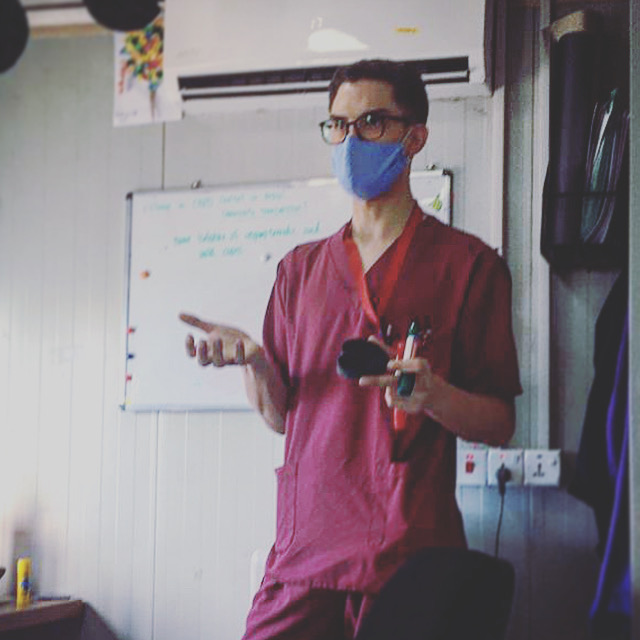
Why did you want to become a nurse?
I have always wanted to work in healthcare, I find it rewarding being able to support people in their most vulnerable states. I also sought a career that is versatile and can take me to places that many other careers can’t. That’s why I chose to become a Nurse.
How did you first hear about Médecins Sans Frontières, and what drew you to work abroad?
I think I first learnt about MSF during my research when I was looking at working within the humanitarian world. I looked at many different organisations, but for me, it was Médecins Sans Frontières | Doctors Without Borders that resonates the most, as I feel strongly about their principles being that their actions are guided by medical ethics, they’re independent, impartial and neutral, they bear witness and have strong accountability.
Additionally, Médecins Sans Frontières is often one of, if not the first international humanitarian organisations on the ground to respond and to deliver medical aid to people affected by armed conflict, epidemics, natural disasters and exclusion from healthcare.
The decision to work abroad was something that was made easier for me when reflecting on the Australian health care system. We see that it is advanced and well established, with equal access to all people. In essence, you will never have anyone say “no” when you seek support, whereas, in other countries, people are not as fortunate as us. I’ve seen firsthand what it means to have restricted access or be excluded from health care. Being able to go abroad to support projects means that I am part of a network of people offering safe, comprehensive, high-quality healthcare and impartial healthcare.
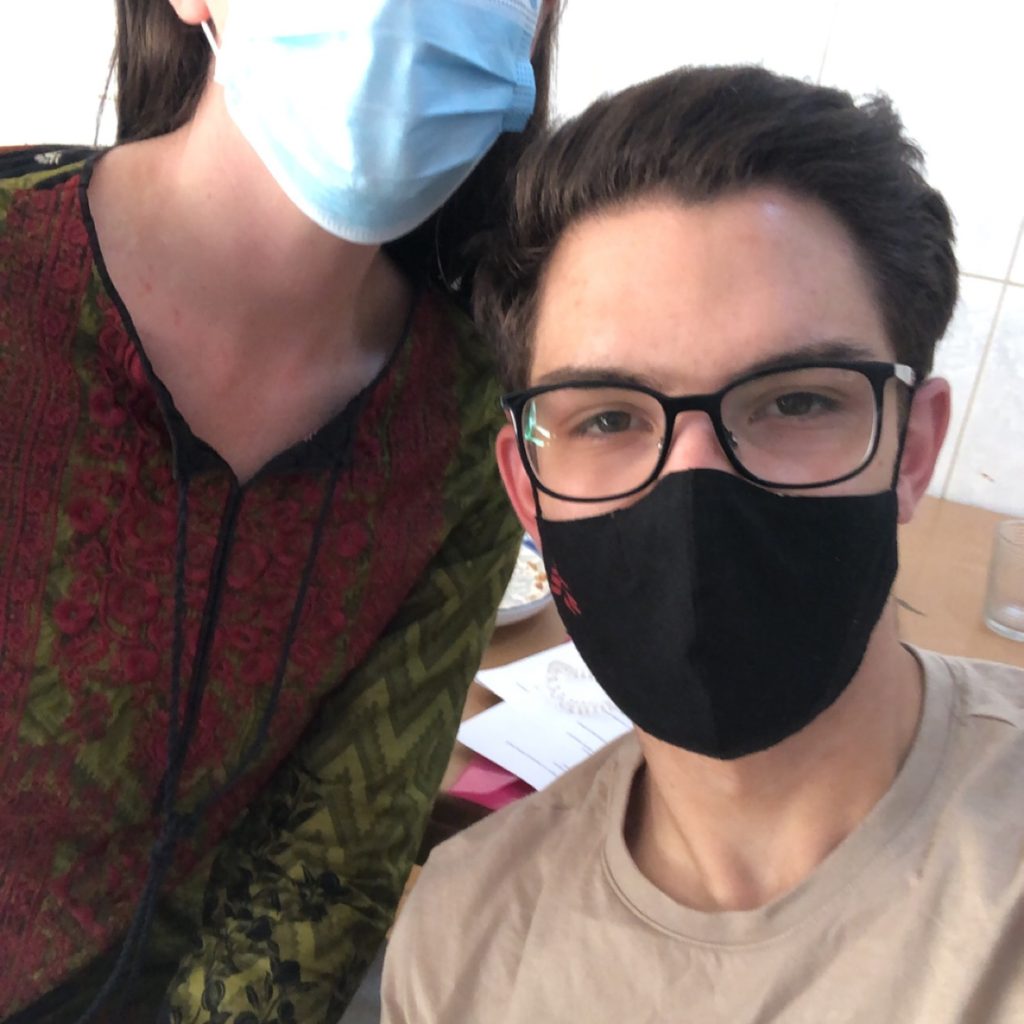
Tell us a little about the role you took whilst working for Médecins Sans Frontières?
When working with MSF you need to be flexible and adaptable (I can’t stress that enough). During my first assignment, I was the Nursing Activity Manager (NAM) in Mosul, Iraq.
As the NAM, I managed the Inpatient Departments (wards), Outpatient Department, Surgical Department (OT), Critical Care Department. Additionally, I managed the nursing services teams, infection prevention and control teams, health promotion teams and the surgical teams. Essentially, I was working with a massive team and had multiple departments to oversee.
When I first arrived in Mosul, I was managing the inpatient services for the hospital while we commenced the COVID-19 intervention. We provided tertiary level hospital care to over 1000 COVID-19 positive patients during this period. It was incredibly busy and challenging, being in a period of unknown. I look back and commend the team for their hard work, dedication and willingness to work during such a ‘dark’ time. For people who have experience working with patients who are unwell with COVID-19 they are able to relate to his sentiment, It is an experience that I will never forget.
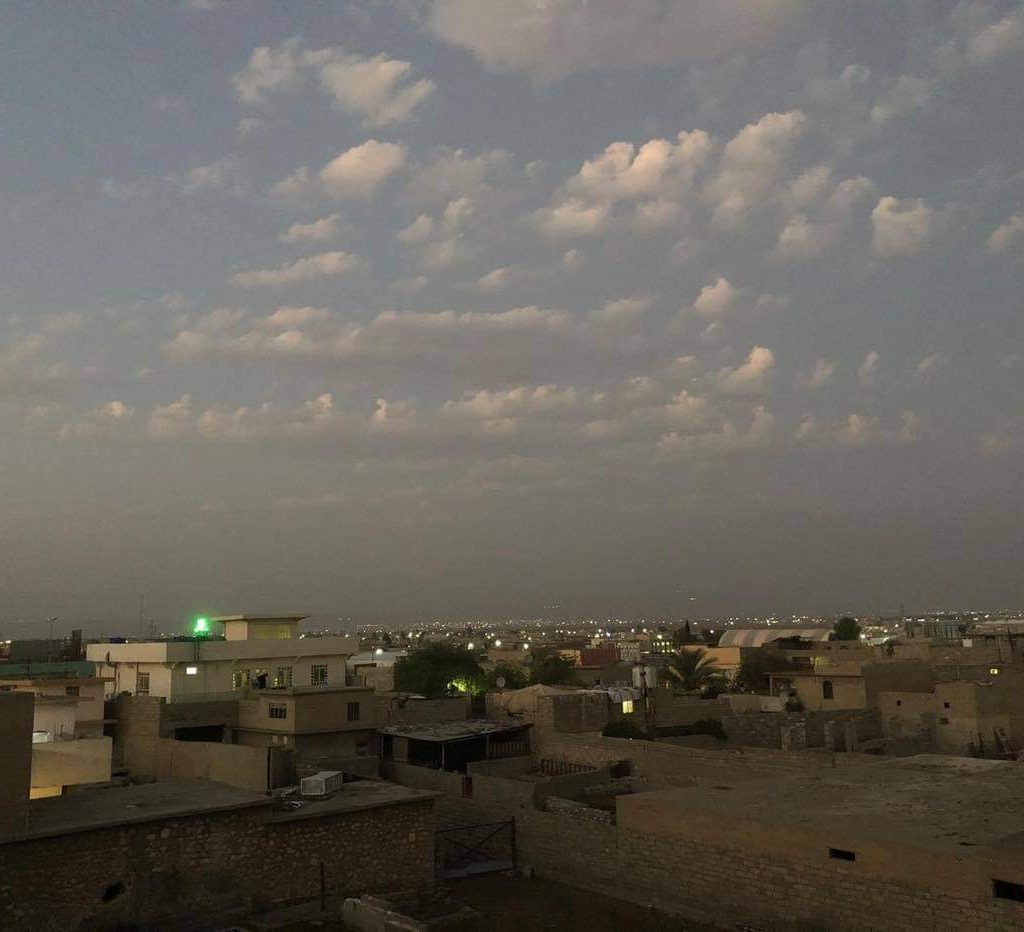
After some time, we reverted back to our regular surgical Services. Being a tertiary orthopaedic centre, we provide comprehensive orthopaedic care to patients who were affected by the war in Mosul. We treated cases involving osteomyelitis, broken bones, dislocations, chronic wounds, foreign body removal and burns along with plastic/reconstructive surgery and so much more.
The NAM position is a very busy position—you are not only managing human resources but also providing clinical leadership and governance. Being able to multi-task and respond rapidly is a skill that you definitely need when you’re working in a large project. It is hard to define the role, however, the best description would be exactly as the name implies with additional responsibilities.
What is a typical day for you in this role?
My typical day at work involved morning rounds of the patients admitted, workforce management, providing clinical support to staff and monitoring indicators such as infection control compliance. There was a huge presence of IPC because we were treating MROs that are resistant to everything, organisms that we don’t see in Australia.
I would be reviewing the resource consumption to ensure that our quotas provided enough supplies, conducting bedside and group training and, of course, I would also have emails to check, phone calls to make, meetings to be had, and policies to write, review and implement.
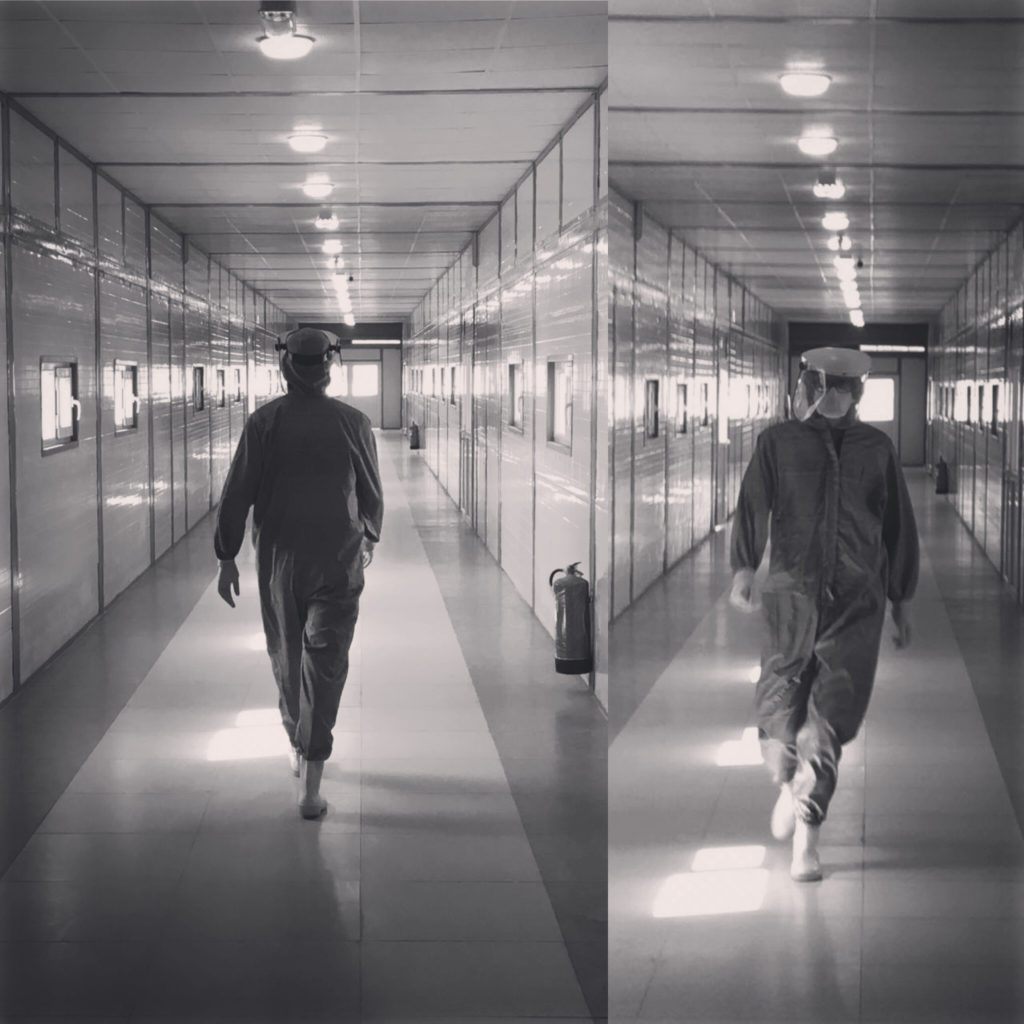
Tell us about the surgical ICU unit that you started and managed?
Part of the role of a good manager is identifying the needs and ensuring that the health service can meet them. Obviously, working in a healthcare environment the demand is always changing and to be able to meet their needs we need to evolve and implement services within the hospital.
During my time in the project I noticed that as we expanded our surgical capacity, patient acuity increased, indicating the need for a higher-level care environment, thus giving me the opportunity to propose and help coordinate the opening of a Level 2 Intensive Care Unit. This unit provided support to the growing demand of the community. It was able to further allow us to take on more complex cases within our service.
What have been some of your most memorable experiences whilst working aboard?
Working abroad has afforded me an array of challenges and experiences that I would never have encountered if I hadn’t taken this path. For me, the feeling of doing something bigger, making a positive impact is such a rewarding feeling, being able to literally improve the quality of people’s lives and reduce suffering.
The teams that we work and live with also make a huge impact on the experience, I have had the opportunity to meet amazing people and form strong bonds. We go through hard times together, laugh and cry together – it is like having a second family.
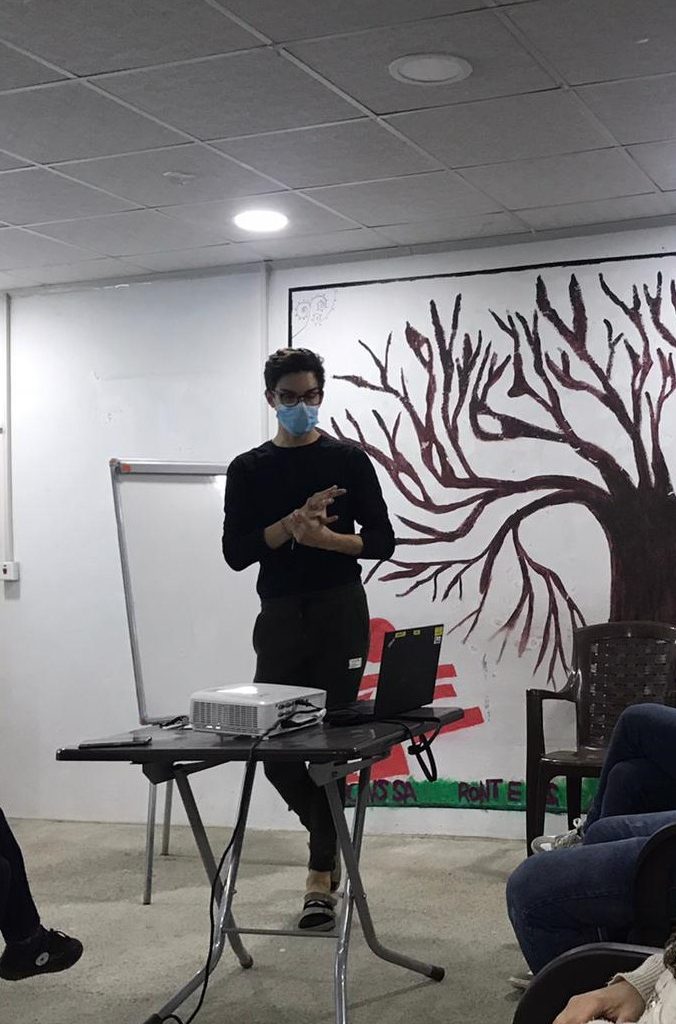
What have you learnt about yourself and nursing as a profession whilst working abroad?
Personally, I have learnt a lot about myself during my time away. I have learnt that I am incredibly resilient and a strong person, also I have learnt what my weaknesses are and areas of myself that I need to work on to improve. The joy of this type of work is you do a lot of self-reflection and you really learn a lot about who you are as a person and your identity.
With regard to the nursing profession, there are two main things that I have learnt. The first is it’s a universal skill, no matter where you go in the world, the very core of nursing is the same everywhere. The second thing I learnt about nursing, no matter where you are in the world, teaching someone to be a nurse is easy, but actually learning and becoming a nurse, that’s not. You can tell the difference between people who are nurses and those that work as a nurse.
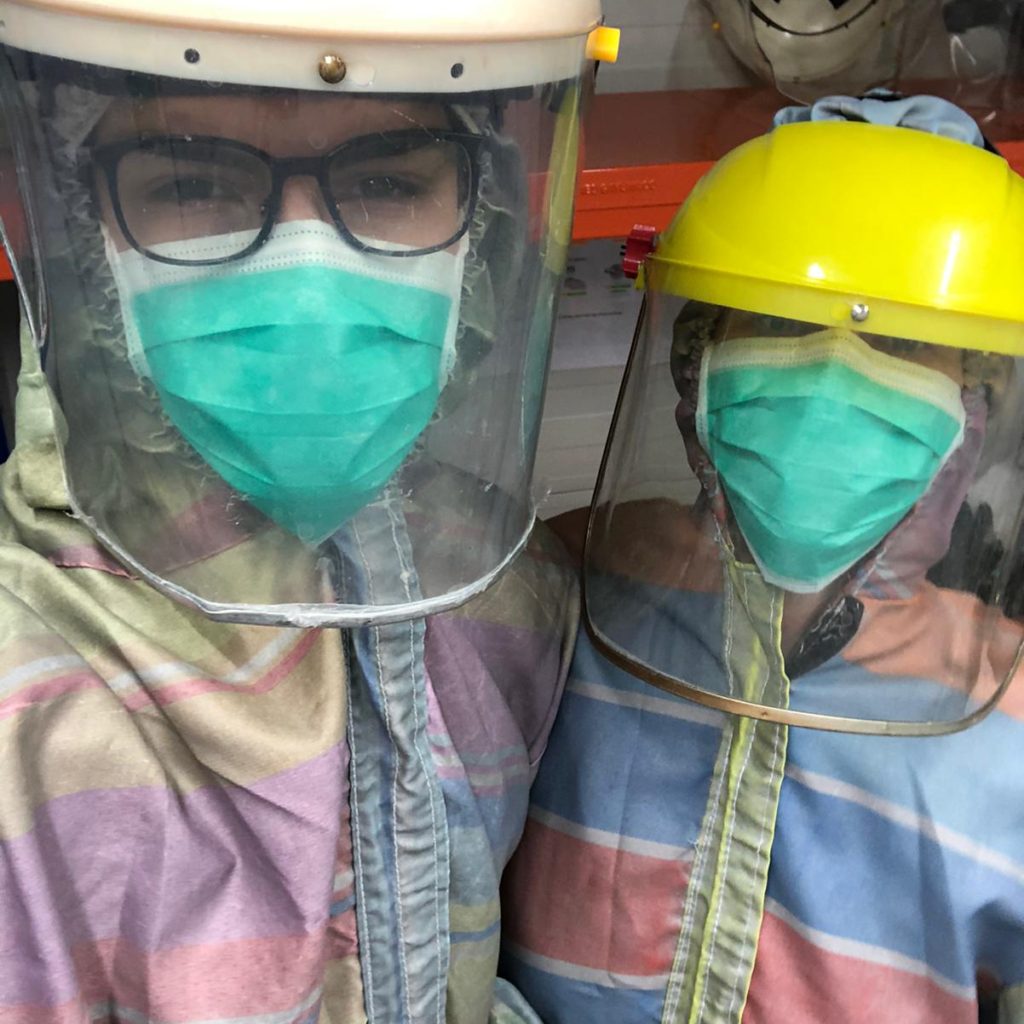
international team
What has been the most difficult aspect of working aboard?
Working abroad is not easy, it can be long periods of emotionally and physically demanding work with minimal downtime. It can also be very isolating. Some of the aspects that you will encounter are adjusting to different cultures and belief systems that are often very different to your own—this includes behaving differently, restrictions on food and drink you can consume and clothes that you wear.
You will also miss out on celebrations and holidays with family and friends. One other big thing you will notice is that every time you come back, you’re a little bit different, and common interests that you once shared with friends are no longer common.
What are some misconceptions of humanitarian nursing?
For me, I’ve noticed that a lot of people assume that to become a humanitarian nurse you need to have certain experience and qualifications and although certain skills can help, it is incorrect. The projects you will travel to as a nurse vary from context to context and can range from primary health care to hospital-based nursing and emergency projects potentially responding to a natural disaster, conflict or an epidemic such as a cholera outbreak.
In my opinion, there are a few things that you need to have to be good at this work: good communication, patience, flexibility, adaptability, compassion and willingness to learn quickly. As far as qualifications and nursing skills go, working in critical care environments is great if that’s what you like, but it doesn’t mean much if you are sent on an emergency assignment where you’re responding to an epidemic, or as the NAM of a primary health project.
I would suggest if you are interested, you ensure that you are very familiar with infection prevention and control as it makes up a huge aspect of the work that you will do overseas. You will also need to understand primary and preventative health.
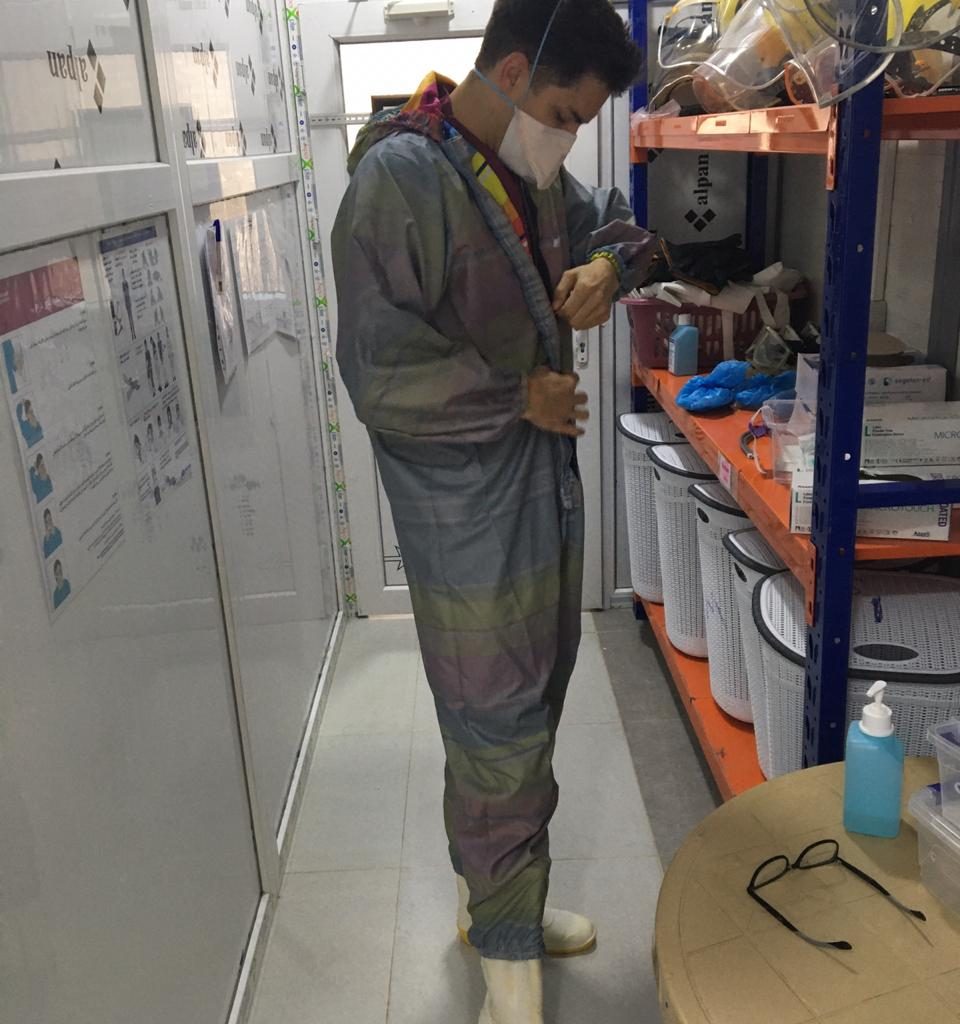
Whilst overseas what did you and your colleagues do for downtime?
When we had downtime, we would all do things differently. I would hang out with some of my team I lived with, often hearing us throughout the house laughing at everything! Maintaining your fitness also helps as both a stress reliever and distraction method, so I was found most evenings on the lawn doing my workouts. I also took up cooking and baking, so often cakes and ice cream were stocked up in the house for everyone, or I would cook big team meals for the weekend so that we could all sit down together and just relax.
Do you get to experience the local culture?
Yes! I had the opportunity to travel to Kurdistan on my long weekends and spend time relaxing and being a tourist, seeing the local culture and eating the amazing food that Iraq has to offer! I explored parts of Mosul and Baghdad. Every opportunity you have to explore and learn about the country and its culture really helps you to understand the context you are in, it really puts the whole experience into perspective.
As I was in a conservative country, the images that I have are limited, however, the food that I was able to eat was amazing! The culture was so rich and full of interesting history. You really see different aspects of life while you are exploring, you see a city that is functioning, as it would back home, with 9-5 jobs. However, the remnants of war are still very present and it’s a constant reminder of your purpose, a very humbling experience.
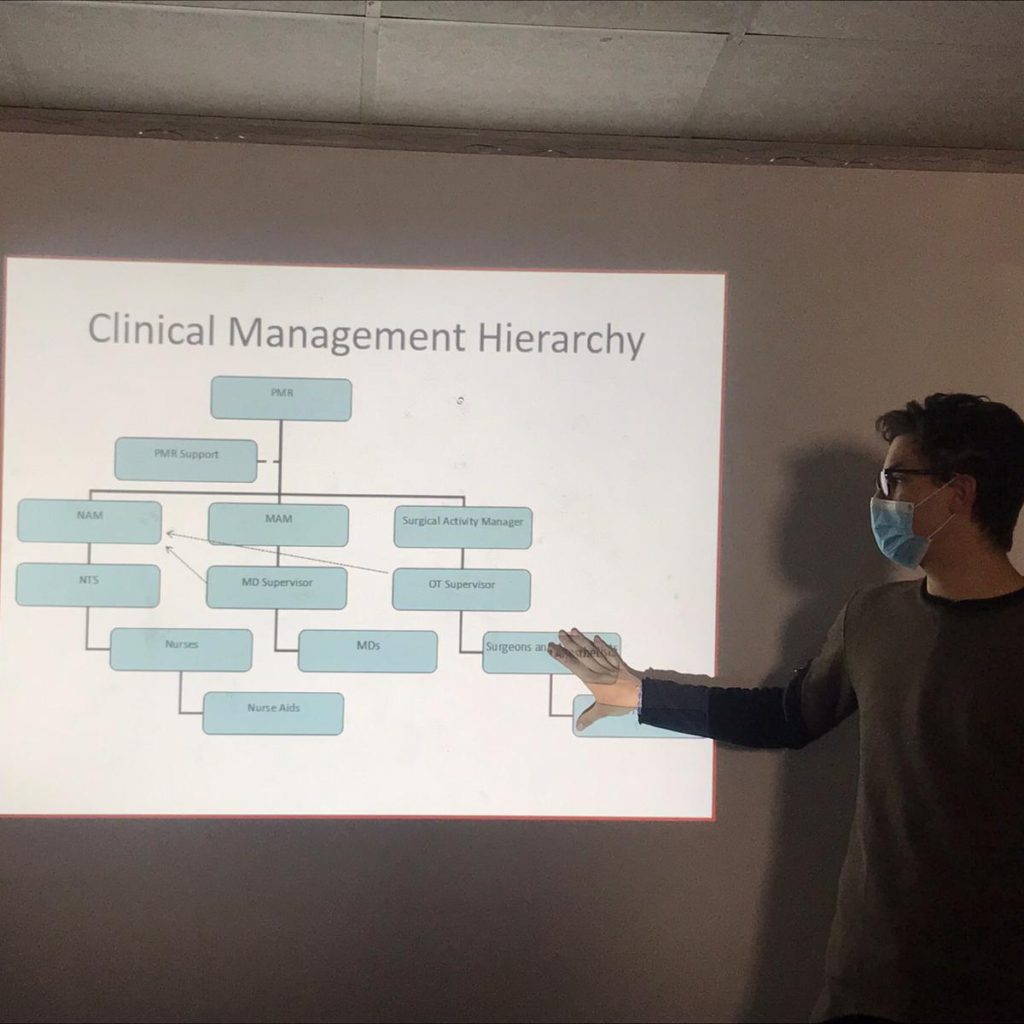
How do you cope with the stress and trauma of working aboard?
I think it is important to understand that stress is a very real aspect of working abroad. You will see things and have experiences that will be hard to process. It is very important that you talk to someone if you are feeling affected by something. No matter whom you talk to, everyone will listen and offer you support and coping techniques.
If you feel you need further support, in MSF we do have access to mental health support services and you can leave the assignment at any time knowing that you will not be judged, nor will it affect your career progression. We are all human and there is a limit to what we can cope with.
How has COVID-19 impacted your current work and roles?
COVID-19 has really changed the world, I think things will be different for a long time to come. For me, in my role I constantly worried about staff becoming unwell, not knowing what would happen. As a result, my knee jerk reaction was to be very firm regarding IPC practices within the health service and to provide regular training in COVID-19 safe practices.
Also, I unfortunately caught COVID-19 during my mission. The source of infection is unknown, which I think is the scariest part, not being able to track it. When it comes to COVID-19 I think that there is still a lot of misinformation circulating and we unfortunately still have the ‘non-believers’.
If you take anything away from this, understand COVID-19 is real, it kills and for years to come we will see the effect it has had on the healthcare system as the chronic infections begin to present. I think in the future there will be huge issues and pressure put on healthcare systems as a result of the expenditure that has resulted from this pandemic. COVID-19 will leave lasting effects for many years to come.
What advice do you have for nurses eager to work overseas in similar nursing roles?
If you are interested in doing this type of work, DO IT! Talk to people that have the experience and ask them for advice and suggestions, make sure you do your research and look into the organisation that best suits you – look at the type of work they offer and where they might send you.
I can promise that anyone who does this type of work will grow as both a person and a professional, you will learn a lot about yourself and what you really are capable of. The challenges and experiences that you encounter will be like nothing you will ever get out of staying in your comfort zone. This work is not easy, but I promise, if you stick it out through the hard times, it really is worth all the sacrifices you make to get there.
What makes a great manager and leader?
In my personal opinion, management is easy, it’s a skill that we learn about from the start of our career, from time management, patient management and people management, put it all together and you have a nurse manager. Leadership, however, is a skill we learn and develop throughout our careers. Leadership is about having shared visions or goals and positively influencing your team to achieve these. Leadership is also about fostering a positive and productive working environment.
For me, I want my team to see me as a leader. I work with my team, when it gets busy, I come out of my office and I get busy with them. I work with them to make the working environment functional and implement processes that alleviate stress. It’s about me working hard to ensure that I listen to their needs and meet them.
I make sure that I am approachable, I will stop whatever I am doing if one of my team members needs to speak with me because without them I can’t do my job and we can’t care for patients.
As a manager myself, I can say that sometimes we lose sight of what it’s like on the floor, we get caught up in the administrative side of everything, but we need to always remember that our team on the floor are what makes our jobs possible.
What advice would you give to your younger nurse self?
I would tell my younger self to take it easy, don’t stress so much. You don’t need to know everything, I can guarantee that if you don’t know it, someone around you will so keep asking questions.
Also, not everyone is going to like you, unfortunately, discrimination is ripe in nursing, and we still have nurses that think it’s okay to ‘eat their young’ or ‘break’ new nurses and build them the way their unit thinks they should be (I detest this type of behaviour). Don’t let it get to you, sometimes it’s going to get tough, hold your head high, smile and spread love not hate.
Who are 3 people who have been your biggest influences?
My parents for sure, they have been behind me every step of the way, always supporting me with the decisions that I make and pushing me to reach my goals.
My best friend (she knows who she is), who has also been with me every step of the way, supporting me through the good times and bad.
Finally, I owe a lot of gratitude to a couple of people I used to work with (managers and colleagues), with who I still maintain regular contact, they really have been able to guide me and offer advice to get me to where I am today. Thank you.
What is something you are reading or watching currently?
I recently read a book called “Band-Aid for a Broken Leg: Being a Doctor with No Borders (and Other Ways to Stay Single)” by Damien Brown. It is his story while working away as a humanitarian. I would strongly suggest that if you want to work in the humanitarian field that you consider reading this book, it provides good insight into the work you will do and the effect that will inevitably have on you – it’s quite real.
If you were in charge of nursing in Australia or worldwide what would you change?
I think in Australia, we do nursing well. Our nurses are well trained and have a wealth of knowledge to ensure that our patients receive high quality, safe care.
Within the international community, I would implement more nurse-led Primary Health Care Centres. I think the presence of these would see a reduction in the pressure on the healthcare system, improvement in the general access to health care and better outcomes for chronic disease management.
Did you enjoy this article? We even interviewed the Vice President of MSF Australia HERE
Find out more about working with Médecins Sans Frontières here
We have heaps of other humanitarian ones! GO HERE to read them!
Know someone (or yourself) who might be keen to write for The Nurse Break!? Email us hello@thenursebreak.org

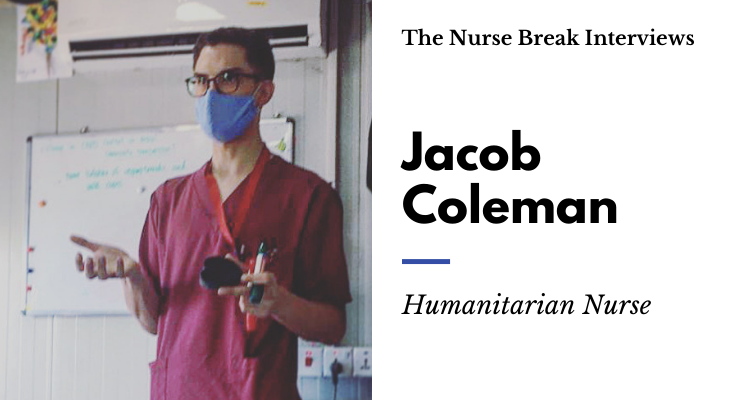




You must be logged in to post a comment.